religious beliefs
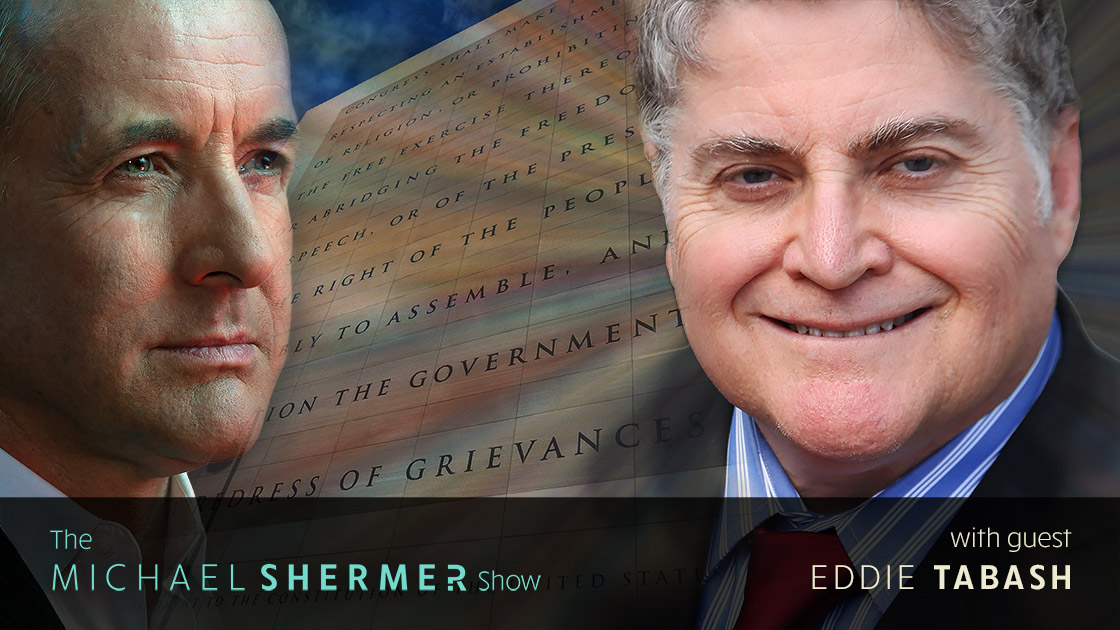
Shermer and Tabash discuss: the history of the relationship between church and state • the founding framers of the U.S. Constitution and their arguments for separating church and state • Madison and Jefferson • how most of the 13 colonies had government-sanctioned religions and religious tests for office • the Constitutional Convention and the First Amendment • the push by some Republicans to hold a new Constitutional Convention and redesign the entire U.S. Constitution • the religious beliefs and attitudes of…

Shermer and Eig discuss: how to write biography • the history of the King family going back to slavery, Jim Crow, etc. • the influence of King Sr. on Martin’s intellectual and emotional development and the Ebenezer Baptist Church • King’s early experience with racism in the south • King’s religious beliefs and the influence of his faith on his civil rights activism • the influence of Gandhi and Reinhold Niebuhr on King’s strategic activism and deep belief in nonviolence…
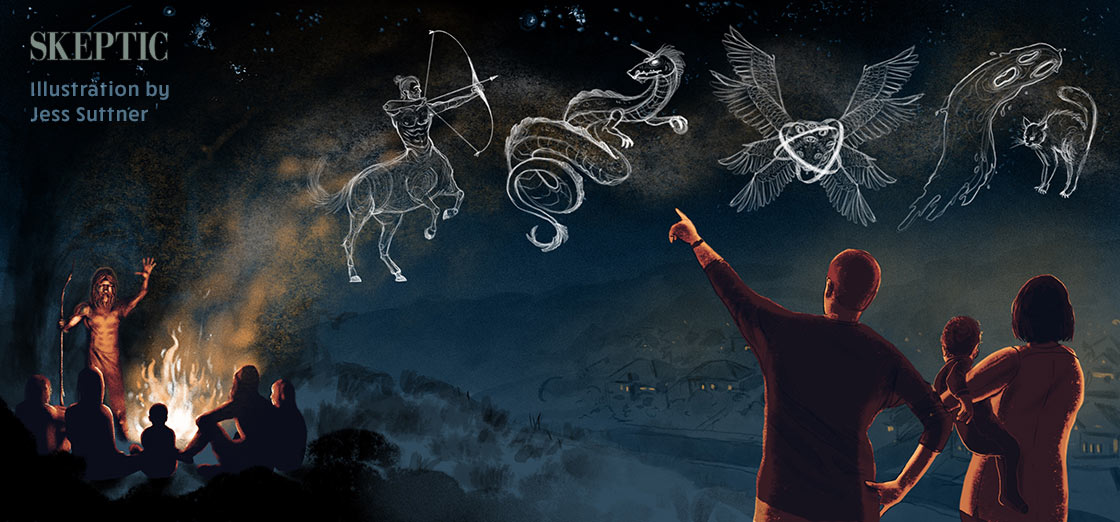
Long before science came of age in the Scientific Revolution of the 16th and 17th centuries, religion had been struggling to make sense of the world for millennia. Sometimes they got it right, but mostly they had no idea how the world works and had no systematic method to determine as much. This article explores the relationship between science and religion in terms of what was known back then and what is known now.
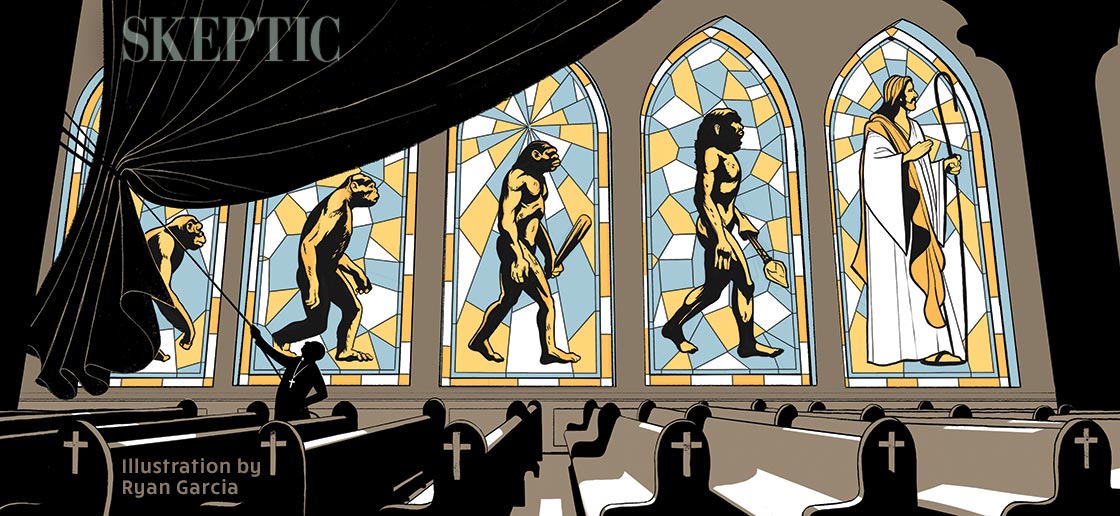
If you give Christians a choice between Jesus and Darwin by telling them that the theory of evolution means you have to be an atheist, they’re going to pick Jesus every time. In this article, Larry Arnhart argues that Christians should accept the theory of evolution not only because it’s true but also that it does not mean they have to give up their religion.
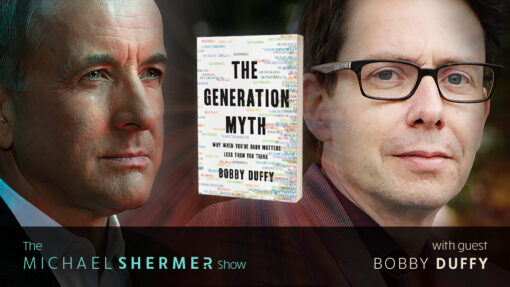
Boomers are narcissists. Millennials are spoiled. Gen Zers are lazy. We assume people born around the same time have basically the same values. But, do they? In episode 224 Michael Shermer speaks with social researcher Bobby Duffy who has spent years studying generational distinctions. In The Generation Myth, he argues that our generational identities are not fixed but fluid, reforming throughout our lives.
Boomers are narcissists. Millennials are spoiled. Gen Zers are lazy. We assume people born around the same time have basically the same values. But, do they? In episode 224 Michael Shermer speaks with social researcher Bobby Duffy who has spent years studying generational distinctions. In The Generation Myth, he argues that our generational identities are not fixed but fluid, reforming throughout our lives.
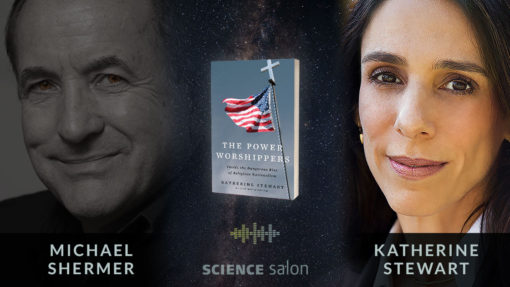
For too long the Religious Right has masqueraded as a social movement preoccupied with a number of cultural issues, such as abortion and same-sex marriage. But in her deeply reported investigation, Katherine Stewart reveals a disturbing truth: America’s Religious Right has evolved into a Christian nationalist movement. It seeks to gain political power and to impose its vision on all of society.
In Science Salon # 114, Michael Shermer speaks with Katherine Stewart about her new book The Power Worshippers: Inside the Dangerous Rise of Religious Nationalism. PLUS: Frank S. Robinson reviews The Tyranny of Virtue: Identity, The Academy, and the Hunt for Political Heresies by Robert Boyers.
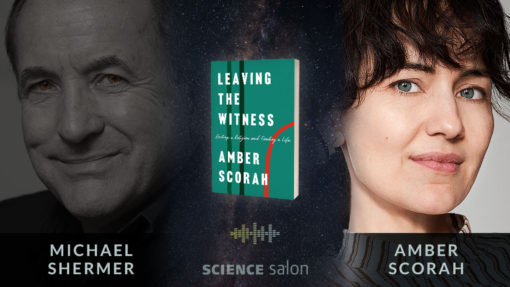
In this revealing conversation Amber Scorah opens the box into the psychology of religious belief to show how, exactly, religions and cults convince members that theirs is the one true religion. A coming of age story of a woman already in her thirties, this unforgettable memoir examines what it’s like to start one’s life over again with an entirely new identity.

In Science Salon # 97 Michael Shermer speaks with former Jehovah’s Witness Amber Scorah about the psychology of religious belief and her new book Leaving the Witness: Exiting a Religion and Finding a Life. PLUS Peter Kassan reviews Artificial Intelligence: A Guide for Thinking Humans by Melanie Mitchell.
We are pleased to announce Dr. Michael Shermer’s brand new 12-lecture Audible Original Course: Conspiracies & Conspiracy Theories — What We Should and Shouldn’t Believe — and Why, available now from audible.com. PLUS, in Science Salon # 83, Michael Shermer speaks with Peter Boghossian about his new book How to Have Impossible Conversations: A Very Practical Guide.
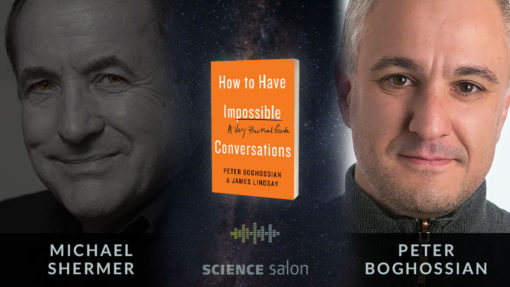
In our current political climate, it seems impossible to have a reasonable conversation with anyone who has a different opinion. Everyone seems to be on a hair trigger. This conversation is a guide to straightforward, practical, conversational techniques necessary for every successful conversation — whether the issue is climate change, religious faith, gender identity, race, poverty, immigration, or gun control.

Since the death of William Peter Blatty—the author best known for his novel turned blockbuster film The Exorcist— exorcism is, once again, showing a robust presence in contemporary life, this time among millennials. In this article, Kathy Schultheis warns that this resurgence of interest in exorcism is a sign of how far reason has fallen.

Since the death of William Peter Blatty—the author best known for his novel turned blockbuster film The Exorcist— exorcism is, once again, showing a robust presence in contemporary life, this time among millennials. In this week’s eSkeptic, Kathy Schultheis warns that this resurgence of interest in exorcism is a sign of how far reason has fallen.

Should the Noah’s Ark story be taken literally? No, said Dr. Gerald A. Larue (1916–2014), former Emeritus Professor of Biblical History and Archaeology at USC, back in 1994, when Skeptic first published this article. There never was a world-wide flood, nor was there ever a “Noah’s ark” containing all the species of the world. Here’s why.
Should the Noah’s Ark story be taken literally? No, said Dr. Gerald A. Larue (1916–2014), former Emeritus Professor of Biblical History and Archaeology at USC, back in 1994, when Skeptic first published this article. There never was a world-wide flood, nor was there ever a “Noah’s ark” containing all the species of the world. Here’s why.
Sigfried Gold reviews Atheists in America, edited by Melanie E. Brewster.
In this week’s eSkeptic, Donald Prothero reviews Karen Stollznow’s book, God Bless America: Strange and Unusual Religious Beliefs and Practices in the United States.
In this lecture based on his new book, psychiatrist Andy Thomson examines the evolution, history, anthropology, sociology, and psychology of religious beliefs and provides a brief and accessible guide to the exciting new discoveries that allow us to finally understand why and how the human mind generates, accepts, and spreads religious faith and god beliefs.



















